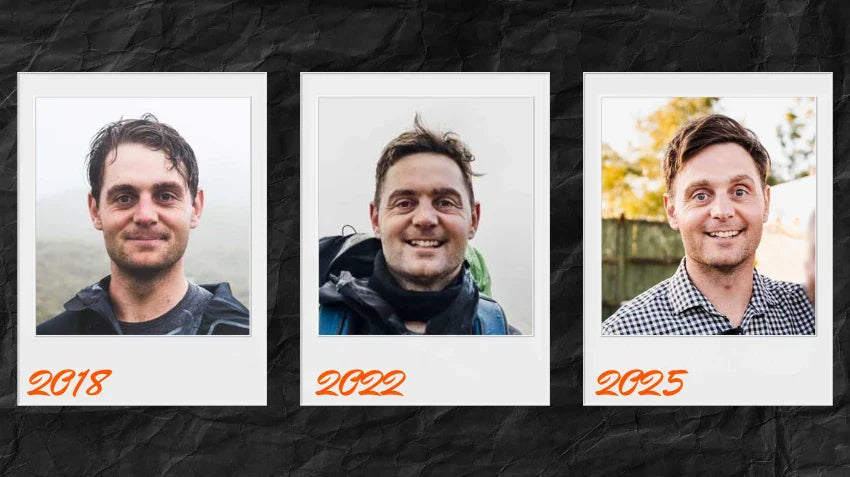What Does the Research Show Are Effective Treatments for ME/CFS?
For decades, ME/CFS has been trapped in a narrative of hopelessness: that it’s an incurable, lifelong condition with no effective treatment. But this perspective is not only outdated—it’s being actively challenged by both patients who are recovering and a new wave of integrative research.
A 2023 paper published in the Scandinavian Journal of Primary Health Care puts it plainly:
“Whilst we regard the symptoms of these conditions as real, we propose that they are more likely to reflect the brain's response to a range of biological, psychological, and social factors, rather than a specific disease process. Possible causes include persistent activation of the neurobiological stress response, accompanied by associated changes in immunological, hormonal, cognitive and behavioural domains. We further propose that the symptoms are more likely to persist if they are perceived as threatening, and all activities that are perceived to worsen them are avoided... Instead, we propose that recovery is often possible if patients are helped to adopt a less threatening understanding of their symptoms and are supported in a gradual return to normal activities.”
(Alme et al., 2023)
This aligns with what I see in clinic every day: recovery is possible, and in fact, the majority of my clients are doing exactly that. In one calendar year, I saw 95 patients for CFS. 82.1% reported having resolved “all or most” of their symptoms and 83.2% ranking their health as “excellent, very good or good”.
So what does the research really show about effective treatment approaches?
A Shift in Understanding
The same 2023 review continues:
“After 40 years of research into CFS/ME, neither a specific biological defect or pathology, nor a specific biomarker, has been identified. Whilst many pathophysiological abnormalities have been reported, these remain as non-specific associations. Similar abnormalities have also been found in patients with other illnesses including chronic pain and fibromyalgia, as well as in illnesses conventionally referred to as ‘psychological’. We therefore think it is time to explore alternative perspectives that include psychological, social as well as biological factors.”
In other words, the time has come to shift from a narrow biomedical search for a single defect toward a broader, biopsychosocial understanding that includes how the nervous system, immune system, belief systems, and behaviours interact. This does not mean that CFS is to be perceived as not real. Instead, it is to see that these real physical symptoms are not coming from a single biological cause such as a virus, but from a complex interweaving of many factors.
The Role of Stress, Perception and Avoidance
One of the most compelling aspects of this newer approach is the recognition that threat perception—the brain’s interpretation of symptoms—can actually maintain or amplify them.
If every symptom is interpreted as dangerous, and every activity that increases symptoms is avoided, the brain can remain in a state of chronic protective response. Over time, this can lead to maladaptive neural pathways and entrenched physiological patterns—but these can be unlearned.
The research suggests that shifting how symptoms are understood, reducing fear and avoidance, and gradually returning to safe activity may play a key role in recovery.
What About CBT and Physical Rehabilitation?
This remains a hot topic. While some researchers and patients understandably reject CBT and exercise-based approaches due to how these were historically delivered (often dismissively or punitively), a more nuanced and respectful delivery is now emerging.
As a 2024 paper in The BMJ puts it:
“Despite supporting evidence, the role of exercise and CBT for long covid and other post-viral fatigue syndromes remains contentious, with some interpreting their success as evidence that the condition is ‘not real’. Our findings suggest it is reasonable to offer CBT and mental and physical rehabilitation to patients.”
“We emphasise that the effectiveness of CBT and physical rehabilitation for long covid neither indicates the condition is psychological nor negates a possible somatic cause. It is possible that CBT and physical rehabilitation only offer patients mechanisms to cope with symptoms from biological causes.”
(Hobbs et al., 2024)
This is an important distinction. Effective rehabilitation is not about pretending symptoms aren’t real—it’s about helping people rewire the systems that are keeping them stuck, whether those mechanisms are biological, psychological, or behavioural in nature.
The Bigger Picture: Recovery is Not Only Possible—It's Happening
The real-world recovery stories are too numerous—and too powerful—to ignore. Programs that focus on emotional processing, nervous system regulation, neuroplasticity, belief change, and supported behavioural shifts are seeing significant results. When people are met with compassion, a coherent understanding of what's happening in their body, and tools to help them shift out of survival mode, the results can be remarkable.
The research is finally starting to reflect what so many patients and practitioners have known for years: recovery is not only possible—it’s probable when the right approach is taken.
Ready to Take the Next Step?
If you’re curious about how to start shifting your nervous system out of survival mode and into recovery, I invite you to check out what we offer at Empower Therapies.
The First Steps to Recovery is a free webinar that introduces you to how nervous system regulation, neuroplasticity, and a new understanding of your symptoms can set you on the path to healing.
For those ready to go deeper, The Switch is our live 4-day course. It teaches advanced techniques for calming the neural system, transforming unhelpful thought patterns, shifting lifestyle contributors, and—critically—releasing stored emotional trauma that may be perpetuating chronic overactivation of your stress response.
This approach has helped over 80% of my clients recover, and it could be the turning point for you too.
References
-
Alme, T. N., Andreasson, A., Asprusten, T. T., Bakken, A. K., Beadsworth, M. B., … Wyller, V. B. B. (2023). Chronic fatigue syndromes: real illnesses that people can recover from. Scandinavian Journal of Primary Health Care, 41(4), 372–376.. https://doi.org/10.1080/02813432.2023.2235609
-
Hobbs, F. D. R., Hunt, D., & Arroll, B. (2024). Should we offer CBT and physical rehabilitation for long covid and other post-viral fatigue syndromes? BMJ, 387, e081318. https://www.bmj.com/content/387/bmj-2024-081318






